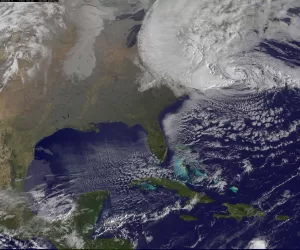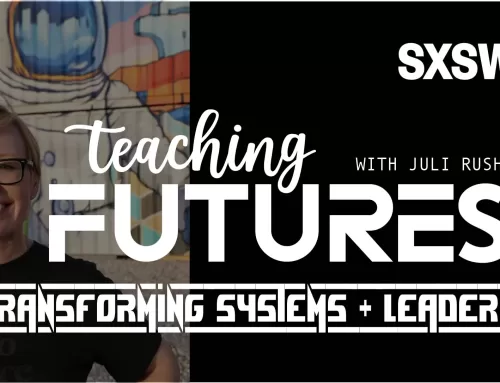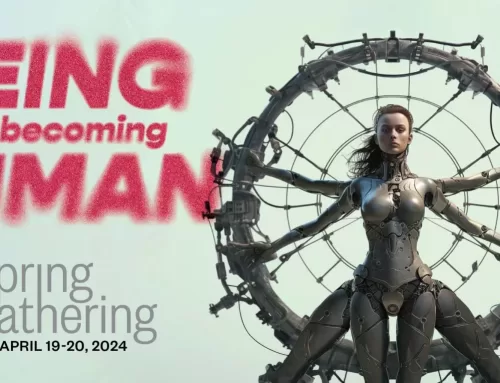Dave Bengston is an environmental futurist and social scientist with the Strategic Foresight Group, Northern Research Station, US Forest Service in St. Paul, MN. He is a Graduate of the UH Professional Certificate in Foresight program and sponsored research on scanning and monitoring for the UH program.

Image from NOAA’s GOES-13 of Hurricane Sandy at 9:10 am EDT on October 29, 2012.
In their book Teaching About the Future, Bishop and Hines state that “The prime foundational concept of foresight is that the discipline is about change” (p. 19). As an environmental futurist, I’ve come to believe that our rapidly changing climate will be the leading driver of change for the foreseeable future.
Margaret Atwood made an astute observation about the increasingly wide-ranging effects of climate change: “I think calling it climate change is rather limiting. I would rather call it everything change. Everything is changing in ways that we cannot yet fully understand or predict.”
The idea that the climate crisis is beginning to affect almost every aspect of the patterns of life is not widely appreciated. People tend to only see the direct impacts – more frequent and severe storms, floods, droughts, heat waves, wildfire, etc. – and fail to connect the dots to the many indirect impacts.
But there are countless indirect and surprising effects of climate change, with more emerging all the time. And the indirect effects are likely to be more devastating than the direct impacts. A few examples illustrate the countless cascading consequences of climate change: Civil war, refugee crisis: Syria suffered its worst drought in at least 900 years from 1998 to 2011, a megadrought made much more likely by climate change. Devastating crop failures occurred from 2006 to 2011, resulting in millions of people moving into cities, worsening social stresses, and contributing to the Syrian Civil War. The ensuing refugee crisis spilled over to Europe and created political ripple effects throughout the continent. Other examples include:
- Increased human trafficking: Frequent flooding from rising seas is eroding land, damaging homes, and destroying crops and livelihoods in the Sundarbans, a large group of densely populated, low-lying islands in India’s Ganges delta. Climate-induced extreme poverty has resulted in growing desperation and increased openings for human traffickers. Girls and young women have been abducted by or sold to traffickers, and then have been sold into prostitution, marriage, or domestic help.
- Higher inflation worldwide: A 2023 analysis from the European Central Bank and the Potsdam Institute for Climate Impact Research found that climate change could increase global inflation by up to 1 percent every year until 2035. Food inflation was even higher: As much as 3 percent more than without climate change. The effects of climate change-driven inflation are likely to be disproportionately felt by those in Africa and South America, according to the research.
- Gentrification and growing housing inequality: The rise of mega-fires and increased flooding in the American West are reducing both the existing housing stock and land suitable for building. New homes built after a climate disaster are consistently more expensive than the old homes they are replacing, along with much higher fire insurance rates. The result is strong upward pressure on the price of homes and lower- and middle-income residents being priced out of the market.
- Dangerous fungi adapting to humans: The human body’s best defense against deadly fungi has been our body heat, which is too warm for most infectious fungi to survive. But fungi could be evolving to withstand higher global temperatures and thus become pathogens for people. Warmer temperatures may also be causing some fungi to evolve more rapidly. Fungal infection deaths are rising in the US, according to the CDC.
- Hotter classrooms reduce student learning: Heat waves are increasing are increasing in frequency, intensity, and duration. One of the many social effects of these climate extremes is their effect on education in classrooms that are too hot for students to learn in. Older schools without air conditioning or with inadequate cooling are much more prevalent in low-income areas, creating a serious equity issue.
There are many more cascading effects of climate change. Some of these effects are potentially catastrophic, like social instability driven by climate change eroding democracy. Others are trivial but unexpected, like professional baseball players hitting more home runs and a threat to the taste of beer. A review article published in the journal Nature Climate Change examined research documenting the impacts of climate change on a wide range of human systems. The authors found “… traceable evidence for 467 pathways by which human health, water, food, economy, infrastructure and security have been recently impacted by climate hazards…” The article concludes that greenhouse gas emissions pose an extraordinarily broad threat to humanity and that the threat of multiple, simultaneous climate threats will likely increase in the future if emissions are not aggressively reduced.
What do we do with the fact that there are countless cascading consequences of climate change, and that they’re beginning to affect nearly every aspect of life on earth?
- First, public and private organizations can anticipate some changes using a method developed by futurists to uncover possible consequences of change: the futures wheel is a structured group process to identify and score the significance of direct and indirect, positive and negative implications of any change. Discovering the cascading impacts of climate change in advance can help planners, managers, and decision makers prepare.
- Second, recognizing that we’ll never identify all emerging impacts in advance, we need to build resilience into all aspects of our lives, from public infrastructure to our personal lives. Resilience is the capacity of systems to absorb unanticipated and unforeseeable impacts of disturbance.
Finally, we simply need to recognize the reality of climate change’s cascading consequences, instead of clinging to the prevailing limited notion of the climate crisis. For the sake of future generations, let’s call it “everything change.” — Dave Bengston




